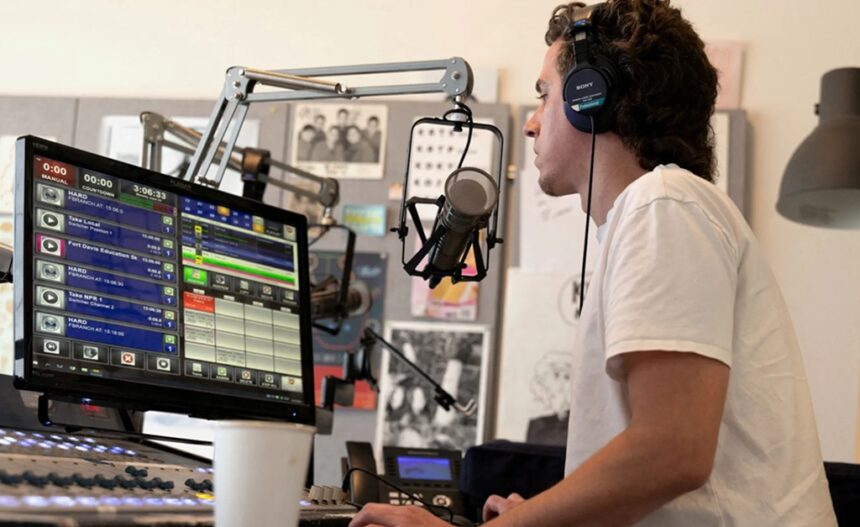WASHINGTON, D.C. — The Corporation for Public Broadcasting (CPB), which has managed federal support for public media in the US for decades, announced on Friday it will stop operations. This comes after Congress decided to cancel $1.1 billion in previously promised funding.
The decision brings an end to nearly sixty years of federal support for National Public Radio (NPR), the Public Broadcasting Service (PBS), and hundreds of local stations.
The closure follows accusations of political bias and President Donald J. Trump’s executive order titled “Ending Taxpayer Subsidization of Biased Media.” The move has sparked heated arguments about the place of publicly funded media in a divided country.
Set up under the Public Broadcasting Act of 1967, the Corporation for Public Broadcasting was meant to encourage independent and varied media shielded from political interference. The law requires the CPB to act impartially, saying it cannot “contribute to or otherwise support any political party” (47 U.S.C. 396(f)(3); also see 396(e)(2)).
Over the years, the CPB has distributed about $500 million each year to around 1,500 local radio and television stations. This funding helps make national shows like NPR’s Morning Edition and PBS’s NewsHour possible, along with local news and educational content, including Sesame Street.
Still, critics, especially President Trump and Republican members of Congress, have argued for years that CPB’s funding for NPR and PBS does not meet its commitment to neutrality.
The White House outlined this view in a fact sheet that accompanied the executive order on May 1, 2025, accusing both NPR and PBS of spreading “partisan and left-wing propaganda with taxpayer dollars.”
They pointed to reports on topics like “queer animals” at NPR and PBS specials on transgender issues as examples of bias. Their argument gained traction after an NPR editor revealed that there were 87 registered Democrats but no Republicans in newsroom leadership—raising concerns about viewpoints in coverage.
Supporters of the Corporation for Public Broadcasting fiercely rejected the accusations. NPR’s CEO Katherine Maher said they remain committed to “integrity and editorial independence,” adding that federal funds make up less than 2% of NPR’s budget, but local stations rely on this money to provide “trusted local and national news, emergency alerts, and public safety updates.”
PBS CEO Paula Kerger called the defunding move “clearly unlawful,” warning it could stop millions, especially those in rural areas, from accessing free, high-quality programmes.
The Executive Order and Congress’s Response
President Trump’s executive order, issued on May 1, 2025, told the Corporation for Public Broadcasting to halt all direct and indirect funding to NPR and PBS “to the maximum extent allowed by law.” The order also changed the rules for CPB grants in 2025, blocking support to these outlets and telling agencies to end any current grants or contracts.
The White House argued that with today’s wide range of media, government-backed broadcasters are “outdated and unnecessary,” and that funding them “hurts the appearance of journalistic independence.”
Legal experts were quick to challenge the order, noting that the CPB, as a private nonprofit set up by Congress, is protected from executive branch control. The Public Broadcasting Act makes clear that no federal agency or official can “direct, supervise, or control” the CPB or its grantees (47 U.S.C. 396).
CPB CEO Patricia Harrison stressed that Congress set up CPB to be a private, fully independent organization. After the Trump administration tried to remove three board members, CPB took legal action, arguing these moves overstepped presidential powers.
Despite lawsuits, the Trump administration kept going, working with Congress to push the funding cuts through. On July 17, 2025, the House passed a $9 billion rescissions bill, pulling $1.1 billion from the Corporation for Public Broadcasting.
The close 216-213 vote, mostly along party lines, was the first such cut since 1999. House Speaker Mike Johnson defended the decision, saying, “This is, in our view, the misuse of taxpayer dollars. They’re not objective. They pretend to be so.”
The Fallout for Public Media
Losing federal money threatens the survival of public media, especially smaller, rural outlets that get much of their funding from CPB grants. While only about 1% of NPR’s direct budget comes from the government, its 246 member organizations, running more than 1,000 radio stations, get 8-10% of their funding this way.
PBS and its 330 local stations count on federal support for around 15% of their income, costing each taxpayer about $2.50 every year.
For many local stations, this loss will mean staff cuts, reduced reporting, or even shutting down. Paula Kerger said the cuts “will be especially devastating to smaller stations and those serving large rural areas,” as they provide services ranging from local news to emergency alerts.
Blue Ridge Public Radio in North Carolina shared how, during Hurricane Helene in 2024, public radio was often the only way people could get information when power and internet were down.
Defenders of public media believe the funding cuts overlook the value NPR and PBS bring. A July 2025 Harris Poll found 66% of Americans—including 58% of Republicans—support federal money for public radio, saying it is a good value for money.
Local stations like WHYY in Philadelphia and Texas Public Radio highlight their work in local journalism and culture, often in partnership with the national networks.
Debate Over Bias and the Corporation for Public Broadcasting Funding
The decision to close the Corporation for Public Broadcasting has fuelled debate about the government’s role in media and what counts as impartial reporting. Supporters of the move, such as Sen. Tom Cotton (R-Ark.), welcomed the end of funding for what he described as “far-left propaganda outlets.”
Social media has seen comments from users like @onward1776 praising Congress for tackling “the unsustainable nature of relying on taxpayer dollars to prop up media outlets that often push a liberal agenda.”
On the other side, critics, including Rep. Adam Smith (D-Wash.), said the executive order moves the country closer to “authoritarianism.” They stress that NPR and PBS reach 160 million Americans each month with “fact-based, impartial news.”
Many in public media point to research by the Pew Research Center ranking NPR and PBS among the country’s most trusted news sources. They also say that setting funding levels two years ahead was meant to keep political interference at bay.
Legal fights are set to continue, with NPR and PBS contesting the cuts in court. NPR’s Maher mentioned the Supreme Court’s 2024 ruling in Moody v. NetChoice LLC, which blocks the government from deciding what counts as “biased” content, as possible support for their case.
But with Congress backing the funding rollback, the legal future is unclear.
What’s Next for Public Broadcasting?
As the Corporation for Public Broadcasting begins closing down, the future for public media is uncertain. Larger stations like WHYY and Louisville Public Media are hopeful they can boost donations and sponsorships to make up the shortfall. Smaller outlets, however, face much harder times.
The end of federal support could disrupt popular shows like Daniel Tiger’s Neighbourhood and Frontline, both of which rely on CPB grants.
Public media teams and supporters are now trying to rally community backing for their mission. One social media user, @LanceUlanoff, summed up the mood: “If you wanted this, you also wanted less free education for your children and less free news for your citizens.
The ramifications of this will be felt for years to come.” Whether public broadcasting can adapt depends on what happens next, but its supporters remain ready to defend its value to an informed public.














